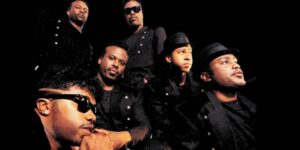Black music in America has a rich and varied history, with genres such as Rhythm and Blues (R&B), Funk, and Soul playing a significant role in shaping the country’s musical landscape. These genres have evolved over time, influenced by African American culture, social changes, and technological advancements. In this article, we’ll explore the evolution of R&B, Funk, and Soul, and their impact on music and society.
The Early Years: Rhythm and Blues (R&B)
Rhythm and Blues, also known as R&B, emerged in the late 1940s and early 1950s, primarily as a fusion of Gospel, Blues, and Jazz. Artists like Ray Charles, Sam Cooke, and Bo Diddley were some of the pioneers of R&B, characterized by their soulful voices, catchy melodies, and upbeat rhythms. R&B was a response to the commercialism of mainstream music, offering a more authentic representation of African American culture.
In the 1950s, R&B began to branch out, giving rise to sub-genres like Doo-Wop, Rock ‘n’ Roll, and Motown. Doo-Wop, with its harmonized vocals and backing harmonies, was popularized by groups like The Platters and The Moonglows. Rock ‘n’ Roll, a fusion of R&B and Country, brought about the emergence of artists like Chuck Berry, Little Richard, and Elvis Presley. Motown, founded by Berry Gordy Jr., became synonymous with R&B, producing legendary acts like The Supremes, The Temptations, and Stevie Wonder.
Funk: The Evolution of R&B
Funk, which emerged in the late 1960s and early 1970s, was a natural progression of R&B. Funk music incorporated elements of Soul, Jazz, and Rock, characterized by its strong backbeat, syncopated rhythms, and prominent use of horns and bass. Funk’s pioneers, including James Brown, Sly and the Family Stone, and Parliament-Funkadelic, pushed the boundaries of R&B, creating a more energetic and danceable sound.
Funk’s influence can be seen in later genres like Disco, Hip-Hop, and Electronic music. Funk’s groove-oriented approach and emphasis on instrumental virtuosity have made it a staple in various musical styles. In addition, Funk’s socially conscious themes, such as Black pride and empowerment, resonated with the African American community.
Soul: The Heart and Soul of R&B and Funk
Soul music, which emerged in the mid-1960s, was a blend of R&B, Gospel, and Folk. Soul’s focus on authenticity, emotional intensity, and personal experience set it apart from other genres. Soul’s pioneers, including Aretha Franklin, Otis Redding, and Marvin Gaye, conveyed a sense of vulnerability, passion, and desperation, making their music relatable to people from all walks of life.
Soul’s influence extends beyond music, with its themes of love, empowerment, and social justice resonating with audiences worldwide. Soul’s impact can be seen in later genres like Disco, Punk, and New Wave, which often incorporated Soul’s emotional intensity and message of self-expression.
The Legacy of R&B, Funk, and Soul
Rhythm and Blues, Funk, and Soul have had a profound impact on music and society. These genres have influenced countless musicians across various styles, from Rock to Pop to Hip-Hop. Moreover, their themes of social justice, Black pride, and self-expression have made them a powerful force for change.
In conclusion, R&B, Funk, and Soul are not just genres, but a reflection of African American culture, its struggles, and its triumphs. Their evolution has been shaped by social change, technological advancements, and the creative output of talented artists. As we look to the future, it’s essential to appreciate the legacy of these genres and their impact on music and society.
Conclusion
The evolution of R&B, Funk, and Soul is a testament to the power of African American culture and its ability to adapt, innovate, and inspire. These genres have left an indelible mark on music and society, shaping the course of musical history and inspiring future generations of musicians.
FAQs
Q: What is the difference between R&B and Soul music?
A: Rhythm and Blues (R&B) is a broader genre that encompasses various styles, including Soul music. Soul music, on the other hand, is a sub-genre characterized by its focus on emotional intensity, authenticity, and personal experience.
Q: Who are some key figures in the development of Funk?
A: James Brown, Sly and the Family Stone, and Parliament-Funkadelic are widely regarded as pioneers of Funk music. These artists pushed the boundaries of R&B, creating a more energetic and danceable sound.
Q: How has Funk influenced other genres?
A: Funk’s influence can be seen in later genres like Disco, Hip-Hop, and Electronic music. Funk’s groove-oriented approach and emphasis on instrumental virtuosity have made it a staple in various musical styles.
Q: What are some notable Soul artists?
A: Aretha Franklin, Otis Redding, Marvin Gaye, and Sam Cooke are widely regarded as some of the most influential Soul artists. These artists conveyed a sense of vulnerability, passion, and desperation, making their music relatable to people from all walks of life.
Q: How have R&B, Funk, and Soul impacted society?
A: These genres have had a profound impact on society, with their themes of social justice, Black pride, and self-expression resonating with audiences worldwide. They have also played a significant role in shaping the African American experience, with their music often serving as a source of empowerment and hope.






